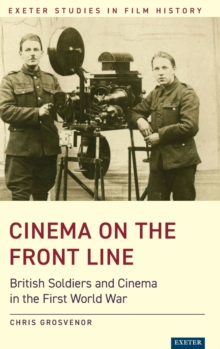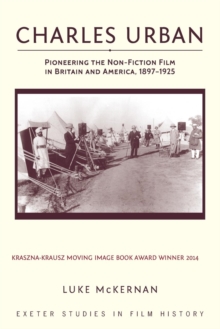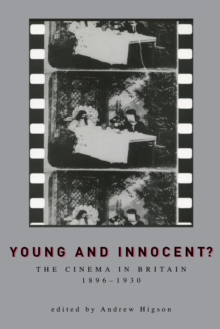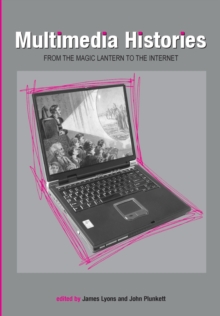
A Chorus Of Raspberries : British Film Comedy 1929-1939 Hardback
by David Sutton
Part of the Exeter Studies in Film History series
Hardback
Description
A Chorus of Raspberries is the first full-length academic study of one of the most popular, profitable and persistent genres in British cinema.
It redraws the map of British film history by arguing that comedy was the most successful, and perhaps the most important, genre of the 1930s, and that the very qualities which ensured the comedy film's low status are also its particular strengths.
In the process it uncovers a whole tradition of popular cinema which criticism has relegated to the sidelines of history. The book looks in detail at the work of a number of key stars, including George Formby, Gracie Fields, The Crazy Gang, Cicely Courtneidge and Ernie Lotinga, revealing the wide range of comic styles and meanings they produced in seemingly formulaic films.
It unearths a host of previously forgotten but notable films, and an important tradition in British popular culture, tracing the roots of the genre to its music-hall beginnings. Includes George Formby, Gracie Fields, The Crazy Gang First full-length study of the subject Will appeal to those studying popular culture and film history Market: Scholars and students of film studies, popular culture, media studies, especially those taking courses on British cinema.
Academic libraries. The general reader with an interest in twentieth-century popular culture and British cinema.
Information
-
Available to Order - This title is available to order, with delivery expected within 2 weeks
- Format:Hardback
- Pages:303 pages
- Publisher:University of Exeter Press
- Publication Date:01/05/2000
- Category:
- ISBN:9780859896030
Information
-
Available to Order - This title is available to order, with delivery expected within 2 weeks
- Format:Hardback
- Pages:303 pages
- Publisher:University of Exeter Press
- Publication Date:01/05/2000
- Category:
- ISBN:9780859896030










